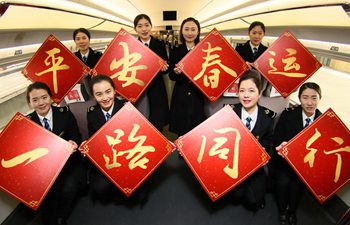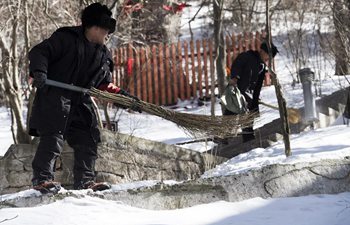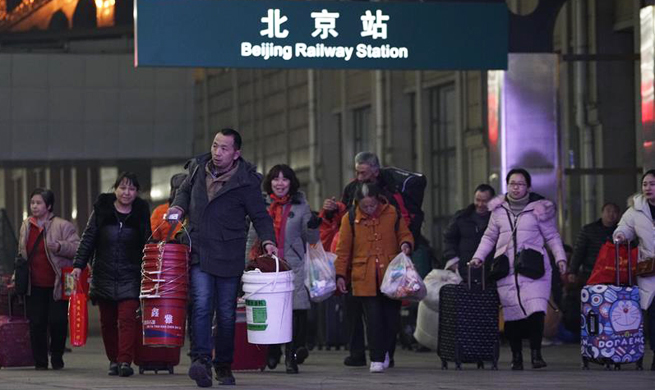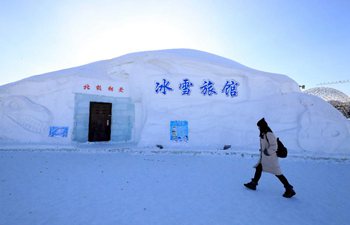By Xinhua writer Zhang Yongxing
SUVA, Feb. 1 (Xinhua) -- China's assistance to the South Pacific Island states is very important and welcomed as such assistance greatly benefits the people of the region and help promote economic and social development in the states, a Fijian economist told Xinhua on Thursday.
"China's aid to the South Pacific island states is crucial. Due to their limited resources, particularly the capital goods and national savings, Chinese assistance in this area has clearly benefited them," Keshmeer Makun, a lecturer at the Fiji National University's School of Economics, said in an exclusive interview with Xinhua.
"With help of the Chinese grants and concessional loans, these countries have actually sped up their infrastructure development which is very useful for long term productivity and economic growth."
Makun, who studied in China for years, praised China for the generous assistance to the South Pacific Island states, which have found the assistance more desirable, bringing tangible benefits to the people.
"As the largest developing country in the world, China has tried hard to develop itself over the past four decades, but China has not forgotten and is always willing to help other developing countries such as the South Pacific Island states in their pursuit for social and economic progress. In fact, China has provided large quantity of urgently-needed aid to the South Pacific Island states over the past decades," he said.
Makun stressed the importance of China's assistance to the South Pacific Island states like Fiji, which has received needed aid from China especially since 2006.
"China's aid to Fiji is very crucial and much needed and it shows significant support after traditional donors (Australia and New Zealand) had isolated Fiji following the 2006 coup. Indeed, China's assistance in many ways has contributed and is still contributing to economic and social development," he said.
For example, in Fiji, the recently-completed Stinson Parade bridge and Vatuwaqa bridge were built with 30 million Fijian dollars of grant from China (about 14.9 million U.S. dollars), he noted.
Other China-aided infrastructure projects include Suva Civic Center renovation project, Marist Brothers High School and St John Bosco Primary School playground upgrading project, Vanua Levu agricultural development project, Somosomo Hydropower Station project and China also provided emergency humanitarian assistance for Cyclone Winston.
Unlike other countries, he pointed out, China offers true assistance and sincere support to the South Pacific Island states without any political conditions. China also has done what it can to prevent debt burden to the states.
"In giving financial aid, China puts no political conditions. It is also important to know that China often takes into consideration the ability to meet foreign debt obligation and solvency constraint of receiving countries hence, preventing heavy debt burden," said Makun.
"Like any other projects, China-funded projects also go through rigorous market research and feasibility study, so that they do not only get the right costing and quality but also bring the preferred social and economic assistance to the people of the South Pacific Island states," he said.
He believes that no one knows better than the people and governments of the South Pacific island countries on whether China's assistance is productive or not, while other countries have no right to act as a mentor and point fingers at and making irresponsible remarks on China's assistance efforts and collaboration with the Pacific island countries in this field.
"The leaders of the South Pacific Island states understand the short and long term needs of such aid and assistance in their country. They recognize the importance of infrastructure development and the effect it has on the social and economic development. The Island states need massive infrastructure development. And I think China is just doing that," he said.
"It is natural for small island nations to have the ambitions to thrive and China gives the best, tries to meet the needs of the receiving countries. In light of this, I think China's aid is welcomed."
Makun stressed that the South Pacific Island states have substantial infrastructure deficit. So for the South Pacific Island states to engage with China in trade and investment will obviously result in benefits by way of having better roads, hospitals, schools, housing, agriculture, etc.
With the Belt and Road Initiative, this trade and investment is likely to continue and intensify, he said.
While pointing out that based on mutual respect and common development, China's economic assistance objective in the South Pacific region is to make win-win cooperation and outcomes, he urged other countries not to grapple with or concern about geopolitics, but to work together with rising China to help enhance the economic and social development in the region.
















